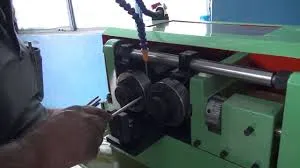
-
 Afrikaans
Afrikaans -
 Albanian
Albanian -
 Amharic
Amharic -
 Arabic
Arabic -
 Armenian
Armenian -
 Azerbaijani
Azerbaijani -
 Basque
Basque -
 Belarusian
Belarusian -
 Bengali
Bengali -
 Bosnian
Bosnian -
 Bulgarian
Bulgarian -
 Catalan
Catalan -
 Cebuano
Cebuano -
 Corsican
Corsican -
 Croatian
Croatian -
 Czech
Czech -
 Danish
Danish -
 Dutch
Dutch -
 English
English -
 Esperanto
Esperanto -
 Estonian
Estonian -
 Finnish
Finnish -
 French
French -
 Frisian
Frisian -
 Galician
Galician -
 Georgian
Georgian -
 German
German -
 Greek
Greek -
 Gujarati
Gujarati -
 Haitian Creole
Haitian Creole -
 hausa
hausa -
 hawaiian
hawaiian -
 Hebrew
Hebrew -
 Hindi
Hindi -
 Miao
Miao -
 Hungarian
Hungarian -
 Icelandic
Icelandic -
 igbo
igbo -
 Indonesian
Indonesian -
 irish
irish -
 Italian
Italian -
 Japanese
Japanese -
 Javanese
Javanese -
 Kannada
Kannada -
 kazakh
kazakh -
 Khmer
Khmer -
 Rwandese
Rwandese -
 Korean
Korean -
 Kurdish
Kurdish -
 Kyrgyz
Kyrgyz -
 Lao
Lao -
 Latin
Latin -
 Latvian
Latvian -
 Lithuanian
Lithuanian -
 Luxembourgish
Luxembourgish -
 Macedonian
Macedonian -
 Malgashi
Malgashi -
 Malay
Malay -
 Malayalam
Malayalam -
 Maltese
Maltese -
 Maori
Maori -
 Marathi
Marathi -
 Mongolian
Mongolian -
 Myanmar
Myanmar -
 Nepali
Nepali -
 Norwegian
Norwegian -
 Norwegian
Norwegian -
 Occitan
Occitan -
 Pashto
Pashto -
 Persian
Persian -
 Polish
Polish -
 Portuguese
Portuguese -
 Punjabi
Punjabi -
 Romanian
Romanian -
 Russian
Russian -
 Samoan
Samoan -
 Scottish Gaelic
Scottish Gaelic -
 Serbian
Serbian -
 Sesotho
Sesotho -
 Shona
Shona -
 Sindhi
Sindhi -
 Sinhala
Sinhala -
 Slovak
Slovak -
 Slovenian
Slovenian -
 Somali
Somali -
 Spanish
Spanish -
 Sundanese
Sundanese -
 Swahili
Swahili -
 Swedish
Swedish -
 Tagalog
Tagalog -
 Tajik
Tajik -
 Tamil
Tamil -
 Tatar
Tatar -
 Telugu
Telugu -
 Thai
Thai -
 Turkish
Turkish -
 Turkmen
Turkmen -
 Ukrainian
Ukrainian -
 Urdu
Urdu -
 Uighur
Uighur -
 Uzbek
Uzbek -
 Vietnamese
Vietnamese -
 Welsh
Welsh -
 Bantu
Bantu -
 Yiddish
Yiddish -
 Yoruba
Yoruba -
 Zulu
Zulu
Thread Rolling Machine Flat Die Suppliers and Manufacturers for Precision Engineering
Understanding Thread Rolling Machines and Flat Die Manufacturers
Thread rolling machines have become indispensable in the manufacturing industry, particularly for producing high-quality threaded components. By utilizing a flat die setup, these machines enable the mass production of threads in an efficient and cost-effective manner. As industries strive for precision and reliability, the role of thread rolling machine manufacturers has grown significantly. This article delves into the workings of thread rolling machines, the benefits they offer, and the significance of flat die manufacturers in this field.
What is a Thread Rolling Machine?
A thread rolling machine is a specialized piece of equipment designed to create threads on cylindrical parts using a rolling process. Unlike traditional machining methods that cut threads, thread rolling utilizes a cold-forming process where the workpiece is shaped by applying pressure through dies. This method not only enhances material properties but also leads to improved surface finish compared to cut threads.
Thread rolling machines can be classified into different types, such as reciprocating and planetary. Among these, machines employing flat dies are highly favored due to their efficiency and accuracy. Flat die rolling involves placing the workpiece between two flat dies that are shaped to create the desired thread profile. As the dies move in a reciprocating manner, they displace material from the workpiece, forming threads without the removal of material.
Benefits of Thread Rolling Machines
1. Enhanced Strength and Durability The cold working process of thread rolling aligns the grain structure of the metal, enhancing the tensile strength of the threads produced. This is particularly important in applications where high strength is critical.
2. Improved Surface Finish Thread rolling generally results in a smoother surface compared to traditional cutting methods. The absence of chips and burrs reduces the need for extensive finishing processes, saving time and costs.
3. High Production Rates Thread rolling machines can produce a large quantity of threaded parts in a short period. This efficiency makes them ideal for industries that require rapid production and high-volume outputs.
4. Material Conservation The process does not remove any material; instead, it reshapes it. This not only conserves raw materials but also reduces waste, making it a more sustainable manufacturing option.
thread rolling machine flat die manufacturers

5. Versatility Thread rolling machines can work with various materials, including steel, aluminum, and brass, making them versatile for different applications and industries.
The Role of Flat Die Manufacturers
Flat die manufacturers play a crucial role in the development and optimization of thread rolling machines. Their expertise in designing and fabricating dies ensures that manufacturers have access to high-quality components that can withstand the rigors of the rolling process.
1. Innovative Designs Flat die manufacturers invest in research and development to produce innovative die designs that enhance thread rolling efficiency. By improving die geometry and materials, they ensure that the dies can perform effectively under different conditions.
2. Customization Different applications require different thread profiles. Flat die manufacturers often provide custom solutions tailored to specific customer needs. This level of customization allows manufacturers to optimize their processes and achieve desired outcomes.
3. Quality Assurance The reliability of thread rolling machines largely depends on the quality of the dies used. Reputable flat die manufacturers adhere to stringent quality standards, ensuring that their products meet the demands of modern manufacturing.
4. Technical Support Many manufacturers provide technical support and guidance to their clients, helping them troubleshoot issues and optimize their production processes. This partnership can lead to significant improvements in efficiency and output.
Conclusion
In summary, thread rolling machines equipped with flat dies have revolutionized the manufacturing of threaded components. The advantages of this technology, including enhanced strength, improved surface finish, and high production rates, are driving its adoption across various industries. Flat die manufacturers are instrumental in this process, providing innovative, high-quality dies that facilitate efficient manufacturing. As industries continue to evolve, the collaboration between machine manufacturers and die producers will be crucial in meeting the growing demands for precision-engineered threaded parts.
